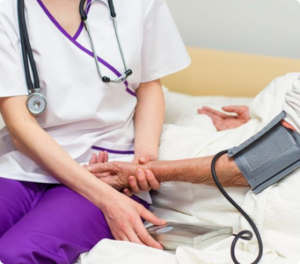Subtotal ₨ 0
Expert Trained & Certified Healthcare Professionals for Quality Patient Care
Pakheal focuses on trained qualified staff providing qualified and trained professionals specifically for your needs. Our team of authorized health professionals, experienced trained medical staff ensures that you receive the best possible assistance and care. They are skilled in various healthcare disciplines, such as maternal and child health, emergency care, and patient management, ensuring that people receive safe, effective, and friendly care. These trained professionals work to improve community health by providing evidence-based healthcare services in Lahore.
Pakheal takes pride in the hard work and skill of its trained and experienced team. Our healthcare experts, & experienced trained medical staff play critical roles in delivering complete, caring treatment to people at all phases of their health journey.
“Skilled home nursing care is not just about medical treatment, but about providing dignity, comfort, and hope.”
Rawsi Williams


Duties are Performed by Trained & Qualified Staff
Skilled and trained workers ensure that all tasks are completed on time, correctly, and professionally. Their field experience increases efficiency, maintains quality standards, and ensures observing regulations. A skilled workforce reduces errors, improves customer happiness, and improves an organisation’s overall success.
Duties Performed by Trained Qualified Staff are as Follows
Health Assessments: Trained professionals analyze vital signs (pulse , temperature, oxygen saturation , respiratory rate, blood sugar levels) take medical histories, and evaluate symptoms before making diagnoses, predicting outcomes, and recommending appropriate treatments.
Wound Care: The cleaning, dressing, and observation of the wound prevent infection and promote healing. Staff members are familiar with the management of wounds and apply them according to medical prescriptions and the needs of patients.
I/V, I/M Medication Administration: The administration of medications intravenously and intramuscularly safely and accurately, accompanied by observation of actions to patients. It also ensures the correct dosage and procedure at which the dosage is administered.
Diabetic Care: Blood sugar monitoring and the provision of insulin and diet. Education on self-management and prevention of complications is offered to patients and their families.
Cathetrization: Catheterization includes putting a sterile tube into the bladder to drain urine. Proper maintenance involves hygiene, catheter security, and infection prevention. Removal should be done carefully to ensure proper bladder function. Monitoring urine input/output is useful for determining kidney function and hydration status.
Cancer Care: Pain management, medication, and emotional support fall within the spectrum of care given to patients who have cancer. They also assist in chemotherapy, symptom relievers, and terminal care.
- Tubes, Drains, Bags: NG tube care consists of correctly setting up and removing feeding tubes and monitoring them to ensure they provide enough food. Drain management involves looking for infection or blockage signs. Drainage bags should be positioned appropriately and tested for performance. It involves the following.
- NG Insertion: Either inserting a nasogastric tube down the nose into the stomach and using a proper, safe approach to avoid infection and Aspiration.
- NG Feeding: When using the NG tube, ensure it is in the proper location in the stomach and observe how the patient reacts to eating. The main issues are tube smoothness, feeding support, and the patient’s comfort.
- NG Monitoring: An NG tube is regularly checked to ensure it is still working and free of breathing risks or blockages. This ensures cleanliness and allows control over pain or infection.
- NG Removal: We prove that the NG tube can be safely removed with little patient discomfort by following regulations designed to reduce the risk of bleeding or mucosal harm.
- Drain Monitoring: It involves examining and recording drain results, maintaining cleanliness, properly draining the tube, detecting signs of infection or blockage, input/output record, and hygiene maintenance. Early detection of problems improves patient comfort.
- Drain Removal: Drains are removed after the wound or surgical site has recovered and proven safe. During this period, monitor for symptoms of infection, excess fluid, and bleeding.
Cardiac Care: Caring for the heart involves close monitoring for signs and symptoms, medication adherence, rehabilitation support, quick reaction to any urgent cardiac occurrences, and significant caregiving.
Post Operative Care: Post-operative care refers to the duration of the patient’s recovery after surgery. During this period, vital signs and pain relief are checked. Post-operative care comprises wound care, mobilisation, and administering medications and oxygen.
Oxygen Administration: Oxygen administration and monitoring of oxygen levels are provided for respiratory patients and those having surgery. Professionals drive to maintain an ideal oxygen level for breathing and complete recovery from acute distress.
Neonatal Care: Neonatal Care is specialised care for newborn babies, including feeding, vitals monitoring, and support for premature and sick babies. Staff members ensure the conditions are safe and nurturing for proper early development.
Pakheal’s trained and qualified staff work to ensure that each patient receives the best possible care. They deliver experience and care to all aspects of patient care, whether in the community, at home, or in the hospital.

